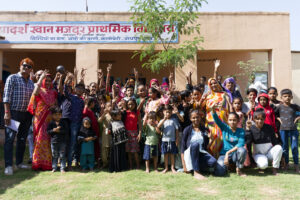Success of the film „the story – child labourers“
Award for Rebecca Gudisch and Thilo Gummel
TV3 International Award for „child labourers“
The documentary story „child labourers“ by Rebecca Gudisch and Tilo
Gummel was awarded a prize. The „TV3 International Award“ is endowed
with 10.000 €.
The explanatory statement of the Jury says, the film fulfils the aims of
the reportage at best. It shows the violation of human rights and is a
plea for the defence of the rights of every single person and democratic
values.





